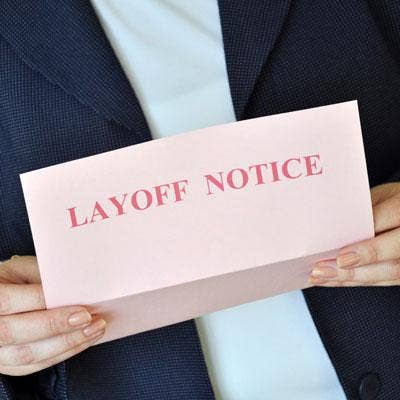5 Companies That Had A Rough Week

The Week Ending May 27
Topping this week's roundup of companies that had a rough week is Microsoft, which disclosed yet another round of cutbacks in its struggling mobile phone business.
Also making the list were Oracle for losing the latest round of its legal battle with Google over alleged Java copyright and patent infringement, Verizon's warnings that the ongoing worker strike is taking a toll on its financial results, Avaya's decision to seek "financial alternatives" to escape its massive debt load, and NetApp's poor fourth-quarter financial results.
Not everyone in the IT industry was having a rough go of it this week. For a rundown of companies that made smart decisions, executed savvy strategic moves – or just had good luck – check out this week's 5 Companies That Came To Win roundup.

Microsoft Makes More Cuts To Its Struggling Mobile Phone Business
Is there anything left of Microsoft's $7.2 billion acquisition of Nokia?
This week Microsoft said it would take a $950 million write-off for its flagging mobile phone hardware business and cut 1,850 jobs to streamline its smartphone business and focus on mobile phones for business. Up to 1,350 of the layoffs are expected to hit Microsoft Mobile Oy in Finland, the former Nokia operations Microsoft bought in 2014.
The news comes a week after Microsoft said it would sell the Nokia brand and its feature phone businesses to FIH Mobile Ltd., a unit of China's Foxconn, and HMD Global. That, combined with this week's news, means Microsoft is essentially out of the consumer phone business. All this has partners wondering about the future of Windows Phone.

Oracle Loses Round In Legal Battle With Google Over Java Copyrights
A federal jury in San Francisco ruled this week that Alphabet subsidiary Google did not violate copyrights and patents Oracle holds on the Java programming language when Google built the Android mobile operating system.
The verdict is a major setback for Oracle in its long-running legal battle to prove that Google infringed on its intellectual property. The legal case has hinged on the question of whether APIs can be copyrighted and Google's use of Java APIs in Android constituted fair use.
Oracle sued Google in 2010, seeking $9 billion in damages. The company vowed to appeal this week's verdict.

Verizon CEO Acknowledges Strike Is Taking A Financial Toll
The six-week-old strike by Verizon workers is hurting the telecommunications company's ability to recruit new customers, and this week CEO Lowell McAdam (pictured) said that is hurting the company's second-quarter financial performance.
Verizon has focused on maintenance and repairs for existing customers while some 40,000 unionized employees remain off the job and on the picket line. That means the company has had to delay Fios service installations for new customers. And that is expected to hurt the earnings results for the second quarter ending June 30, due to be reported in July.
There are reports the two sides are back to negotiating this week. But as long as the strike continues, these will continue to be rough weeks for all parties involved.

Avaya Mulls 'Financial Alternatives' To Reduce Its Massive Debt
Avaya this week reportedly retained Goldman Sachs and other financial services companies to conduct an assessment of the company's financial alternatives – possibly including a sale – to reduce its huge debt load.
Avaya, owned by private equity firms Silver Lake Partners and TPG Capital, has a whopping $6 billion in debt and needs to raise $600 million for a debt maturity in October 2017. The unified communications and networking technology company is reportedly valued at between $6 billion and $10 billion.
The massive debt is said to be hindering Avaya's ability to quickly maneuver in the fast-changing industry, including its efforts to shift from hardware to a focus on software.

NetApp Reports Q4 Loss, Sales Decline
Storage systems developer NetApp ended its fiscal 2016 on a down note, reporting an $8 million loss for the fourth quarter ended April 29 and a 10 percent decline in revenue to about $1.38 billion. For the full fiscal year, the company's sales were down about 9 percent to $5.55 billion.
It was the end to a turbulent fiscal year for the company, which included declining commercial and channel sales, the departure of key executives, layoffs and, in June, the ousting of CEO Tom Georgens.
During this week's earnings call, current CEO George Kurian was upbeat on the company's future prospects with new technologies and products on the horizon, some stemming from the company's SolidFire acquisition in February. But as the fourth-quarter results illustrated, NetApp's turnaround remains a work in progress.